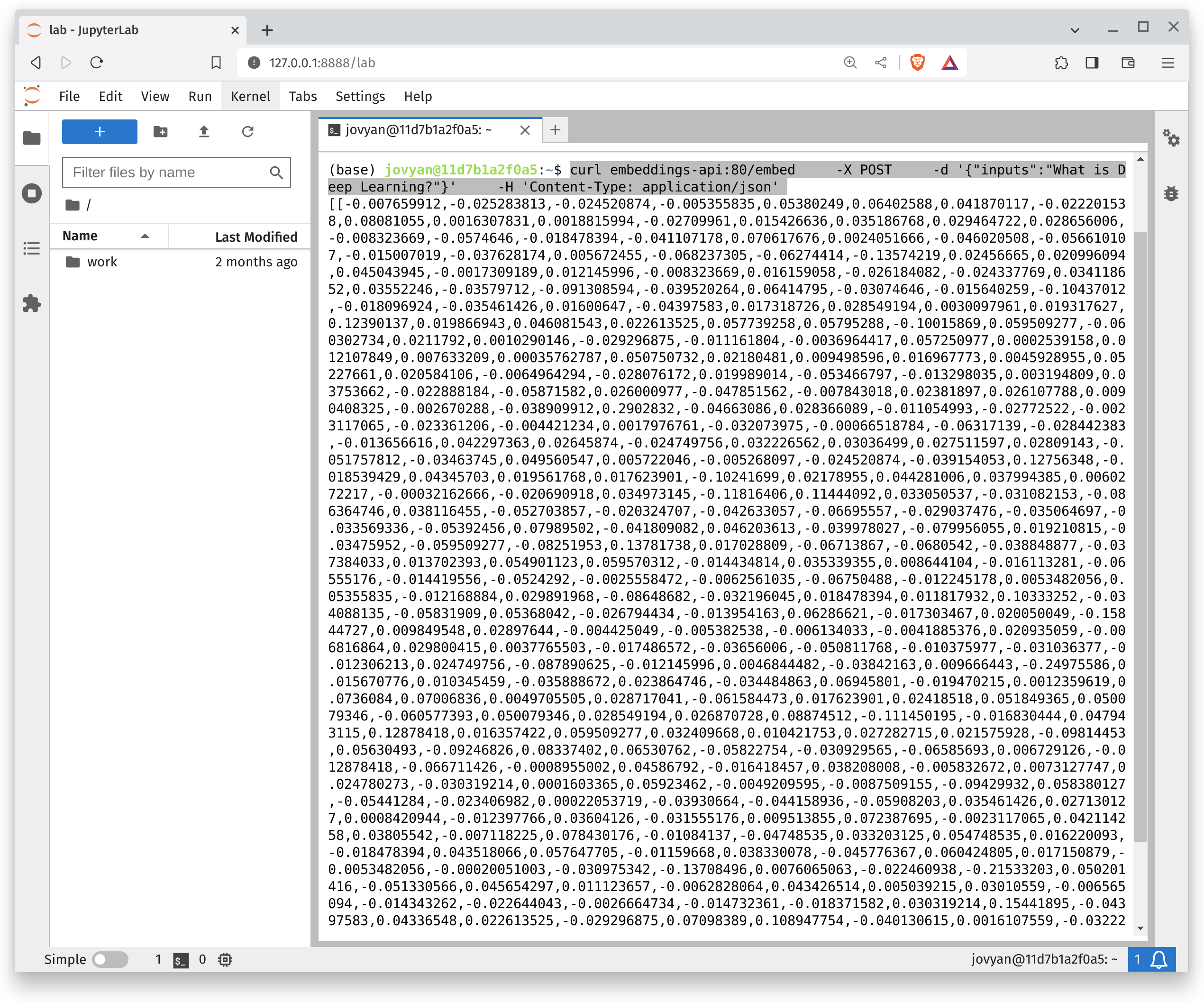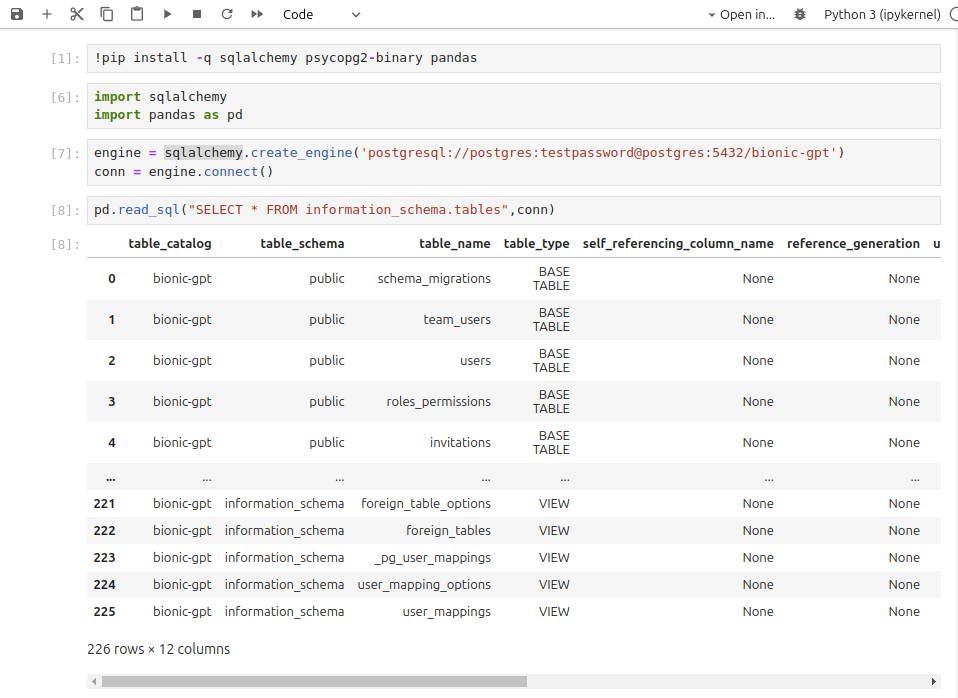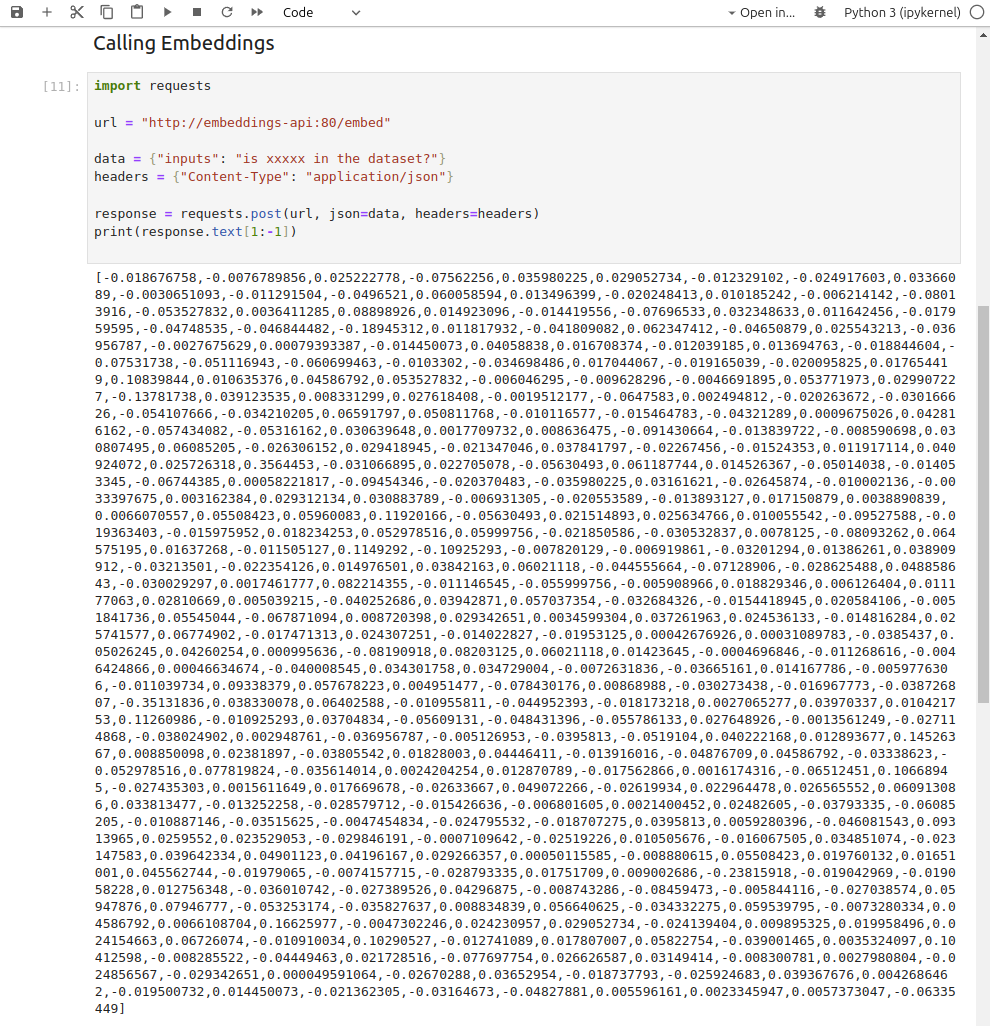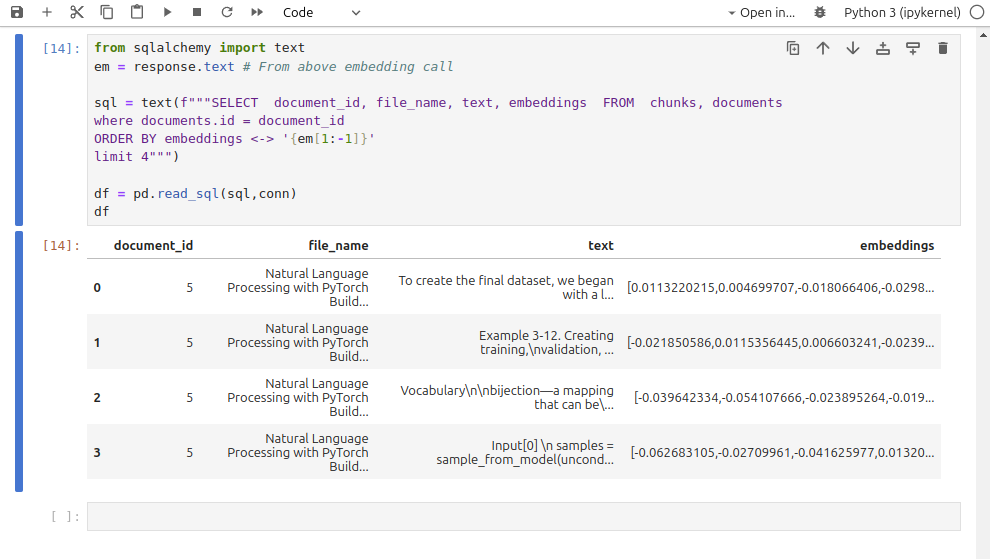Adding a Jupyter Notebook#
We can extend our docker-compose to include a Jupyter Notebook.
Store the following in docker-compose-jupyter.yaml
services:
jupyter:
image: jupyter/minimal-notebook
ports:
- 8888:8888
Then run
docker-compose -f docker-compose.yaml -f docker-compose-jupyter.yaml up
Getting the Login URL#
In the logs you should see something like the below
http://127.0.0.1:8888/lab?token=b2eb9f7b5e0fafaef985b734e6fc4ad8f0e58c529c15f73e
This is the authentication token. You’ll need to use that URL to Login.
Accessing the various APIs#
Example accessing the embeddings API. open up a notebook terminal and run
curl embeddings-api:80/embed -X POST -d '{"inputs":"What is Deep Learning?"}' -H 'Content-Type: application/json'

Accessing the Database#
!pip install -q sqlalchemy psycopg2-binary pandas
engine = sqlalchemy.create_engine('postgresql://postgres:testpassword@postgres:5432/bionic-gpt')
conn = engine.connect()
import sqlalchemy
import pandas as pd
pd.read_sql("SELECT * FROM information_schema.tables",conn)

Accessing Embeddings From Python#
url = "http://embeddings-api:80/embed"
data = {"inputs": "is US20040098780A1 in the dataset?"}
headers = {"Content-Type": "application/json"}
response = requests.post(url, json=data, headers=headers)
print(response.text[1:-1])

Embedding Based Query on Database#
from sqlalchemy import text
em = response.text
sql = text(f"""SELECT document_id, file_name, text, embeddings FROM chunks, documents
where documents.id = document_id
ORDER BY embeddings <-> '{em[1:-1]}'""")
# print(sql)
df = pd.read_sql(sql,conn)
df
